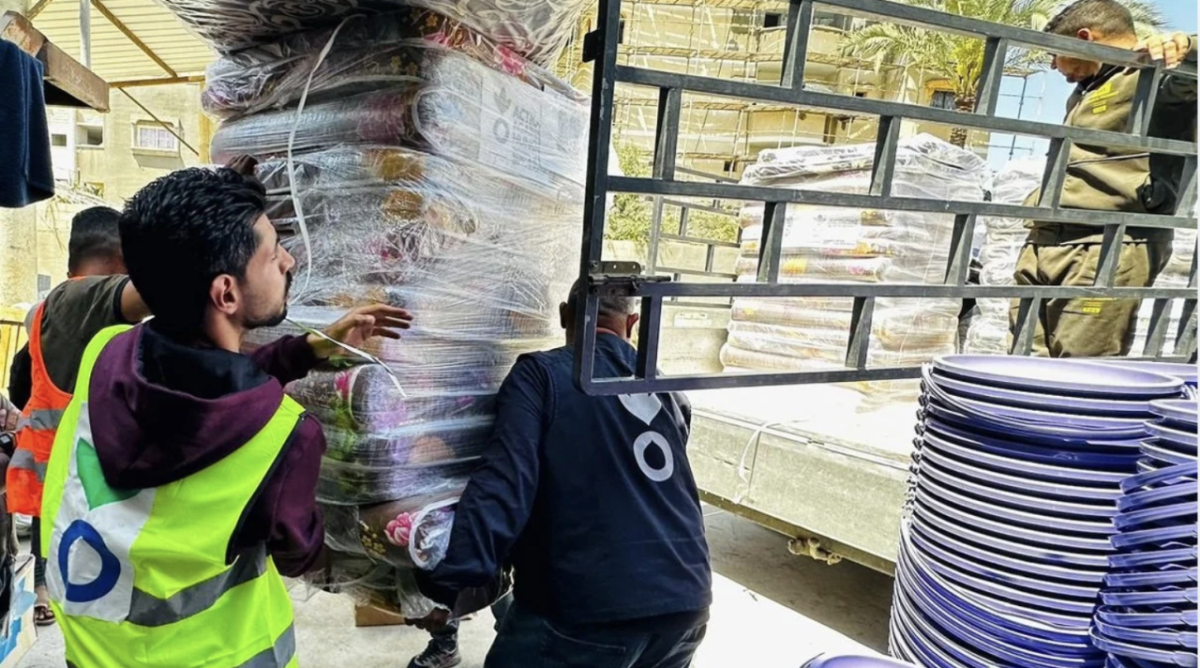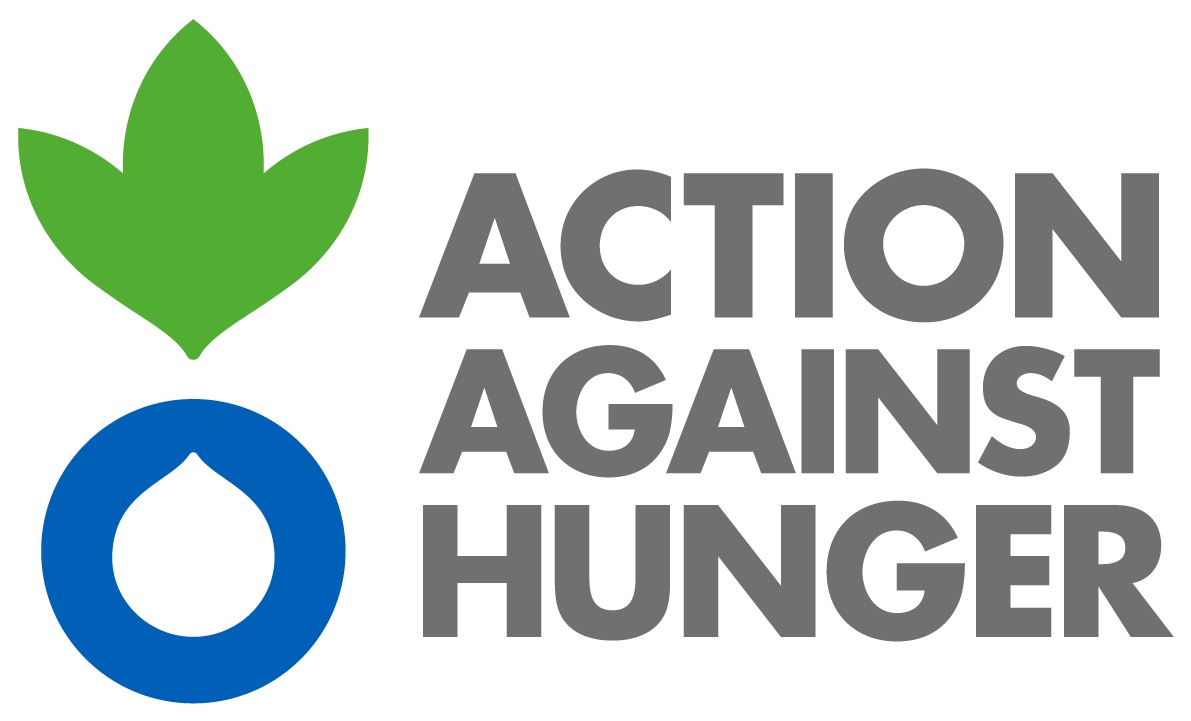Action Against Hunger Increases Aid in Gaza, the West Bank and Lebanon in Response to Rising Needs
Hunger is Likely to Rise with Oncoming Winter and Widescale Displacement

October 9, 2024 /3BL/ - One year into the Israel- Gaza conflict, and the biggest escalation of violence in years in the region, Action Against Hunger is expanding humanitarian assistance to reach the most vulnerable families in Gaza, the West Bank and Lebanon.
To date, nearly 42,000 Palestinians have died and around 100,000 have been injured. More than 1.9 million people are displaced in Gaza and the entire population is facing food insecurity. Humanitarian needs will only grow with the oncoming winter and escalating displacement, both of which are expected to increase malnutrition in the Gaza Strip and now the needs of thousands of families in Lebanon as well. Over the last year, teams on the ground have faced serious challenges, including limited ability to deliver aid and the lack of protection for humanitarian workers.
Limited Access to Aid in Gaza
"All land crossings need to be opened for goods and personnel, ensuring the provision of critical services such as water, electricity, fuel and food,” said Jean Raphael Poitou, Action Against Hunger’s Middle East Advocacy Officer. “The protection of all humanitarian and health workers is essential to save lives.”
At the end of July, the UN estimated that 86% of the Gaza Strip was marked as unsafe by Israeli forces. Only 15 square miles is what remains of the so-called “safe zone,” with more than two million people unable to access basic hygiene, protection, food and water in accordance with human rights and international humanitarian law. "The concept of ‘safe zones’ or ‘humanitarian zones’ in Gaza is non-existent,” said Poitou. "We continue to call for a permanent ceasefire so that we can deliver the humanitarian aid needed by the entire population of the Gaza Strip and Lebanon and avoid further civilian casualties.”
Despite great difficulties, Action Against Hunger continues to operate in the Gaza Strip, the West Bank and Lebanon, distributing fresh and dry food, drinking water and hygiene kits, and providing other necessities to vulnerable communities.
Increased Humanitarian Response in Gaza and the West Bank
With winter coming, needs will only increase. "In addition to everything we have been doing, there is a new priority with the arrival of the cold, especially in Gaza, where there are thousands and thousands of people who have been displaced for a year, moving several times, leaving behind clothes and shoes and with tents that have already been destroyed,” said Anguera. “We fear an increase in disease, because it is a coastal area, with many people sleeping on the beach in storms and torrential rains, or in areas with rubbish where rainwater accumulates.”
The collapse of Gaza's health system, restricted access to sufficient food, clean water and hygiene items, the destruction of agricultural land and local markets, blocked roads, and poor shelter conditions have led to malnutrition, a serious health condition that previously did not exist in the Gaza Strip.
"A year ago, the image of an aid worker measuring the arm circumference of a Gazan child didn't exist because there was no malnutrition," said Anguera. In response, Action Against Hunger has implemented both prevention and nutritional treatment programs for children and pregnant and lactating women, two of the most vulnerable populations in Gaza.
“All children in Gaza are at risk of malnutrition,” said Cristina Izquierdo, the Nutrition Coordinator for Action Against Hunger's emergency team, who has worked in Gaza several times in the past eight months. “"We provide a holistic response, addressing the underlying causes of malnutrition. Access to water is insufficient and hygiene conditions are horrible. That's why we are also working in this area and on food security.”
Over the past year, despite insecurity and blockades, Action Against Hunger has provided assistance to more than one million people in Gaza and the West Bank, including. This includes more than 916,000 people in the Gaza Strip who have benefited from Action Against Hunger's water, sanitation and hygiene activities, including the distribution of safe drinking water, hygiene kits and the installation of toilets. In addition, more than 175,000 people have benefited from Action Against Hunger's food security and livelihood interventions, which include the distribution of fresh and dry food and hot meals, as well as increased support to farmers. More than 47,000 people, especially children and mothers, have had access to Action Against Hunger’s nutritional support.
Since the beginning of the conflict, the organization has increased its staff in the area from 60 to 130 humanitarian workers. "For years, Action Against Hunger has been working with farmers and herders in the Gaza Strip and the West Bank,” said Anguera. “Despite the conflict, we maintain our goal: to promote resilience, so that people don't have to leave the land they work on. We work so that people have infrastructure, pipelines and roads, so that they can raise their animals.”
Around 75% of Gaza’s farmland has been destroyed.
"Food security is about dignity and autonomy. It is about not having to depend on external aid,” said Anguera. “In Gaza and the West Bank, we face the destruction of local markets and increased violence by Israeli settlers. Farmers have been displaced, infrastructure is closed, fuel remains a constraint for transportation. It is key for Action Against Hunger to be able to continue supporting farmers.”
Emergency Response in Lebanon
Between September 16 and September 27, 2024, more than 1,000 people, including 87 children, were killed by increased hostilities in Lebanon. In Lebanon, increased tension on the border with Israel has displaced more than one million people, according to Lebanese authorities. Prior to this escalation, the number of internally displaced persons had already grown by 1,800% due to the violence on the border.
“In Lebanon, where we have been present since 2006, we have a team of 240 people. In this country, since October 2023, we have supported more than 160,000 people through cash assistance, nutrition and health activities, food aid, and water, sanitation, and hygiene services,” said Anguera.
In the face of the crisis and regional escalation, Action Against Hunger teams are scaling up their activities, working closely with local authorities, the UN and other organizations to reach affected communities, including Syrian refugees in Lebanon, who had fled one conflict only to find themselves caught in the middle of another. Since the first hours of the escalating conflict in Lebanon, Action Against Hunger has been distributing water, food, blankets, and other necessities to vulnerable people and coordinating with authorities and institutions to increase support in collective shelters open to the population.
Hunger as a Weapon of War
"Hunger is being used as a weapon of war in Gaza," said Poitou. "It shows the failure of the international community to enforce respect for international humanitarian law. We cannot allow key civilian infrastructure to continue to be destroyed, aid to be blocked or agricultural land to be destroyed. This is using hunger as a weapon of war. It is imperative that international humanitarian law is applied to protect civilians, as well as to ensure that hostages are returned home and that all available mechanisms to protect humanitarian and aid workers are put in place and respected.”
About Action Against Hunger
Action Against Hunger is a global leader creating a future where every life is well nourished. We innovate to prevent malnutrition and respond to hunger hotspots, working in 59 countries and reaching more than 21 million people each year. Together, we are promoting resilience and working to end hunger for everyone, for good.

